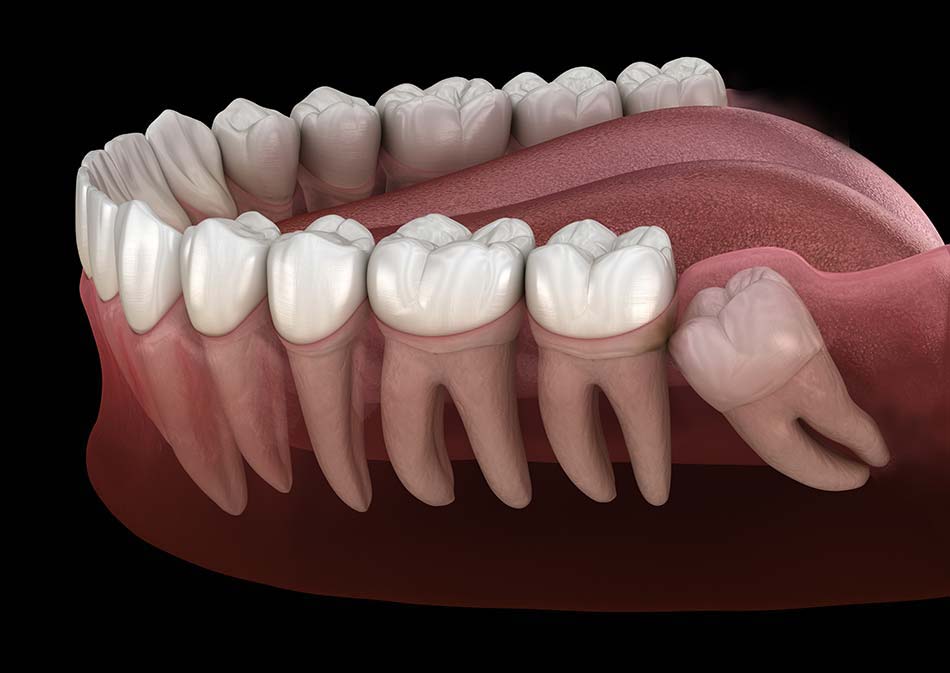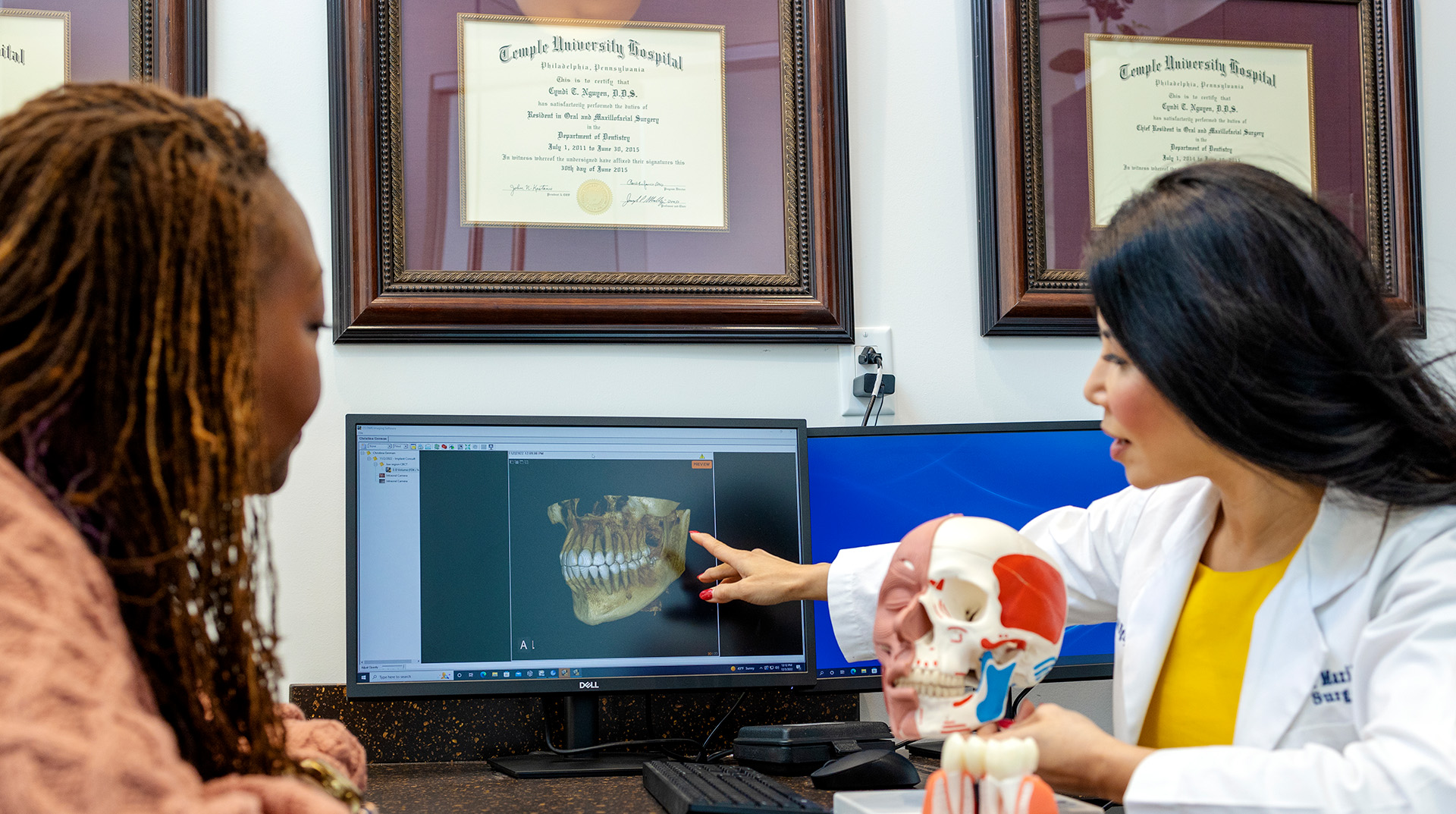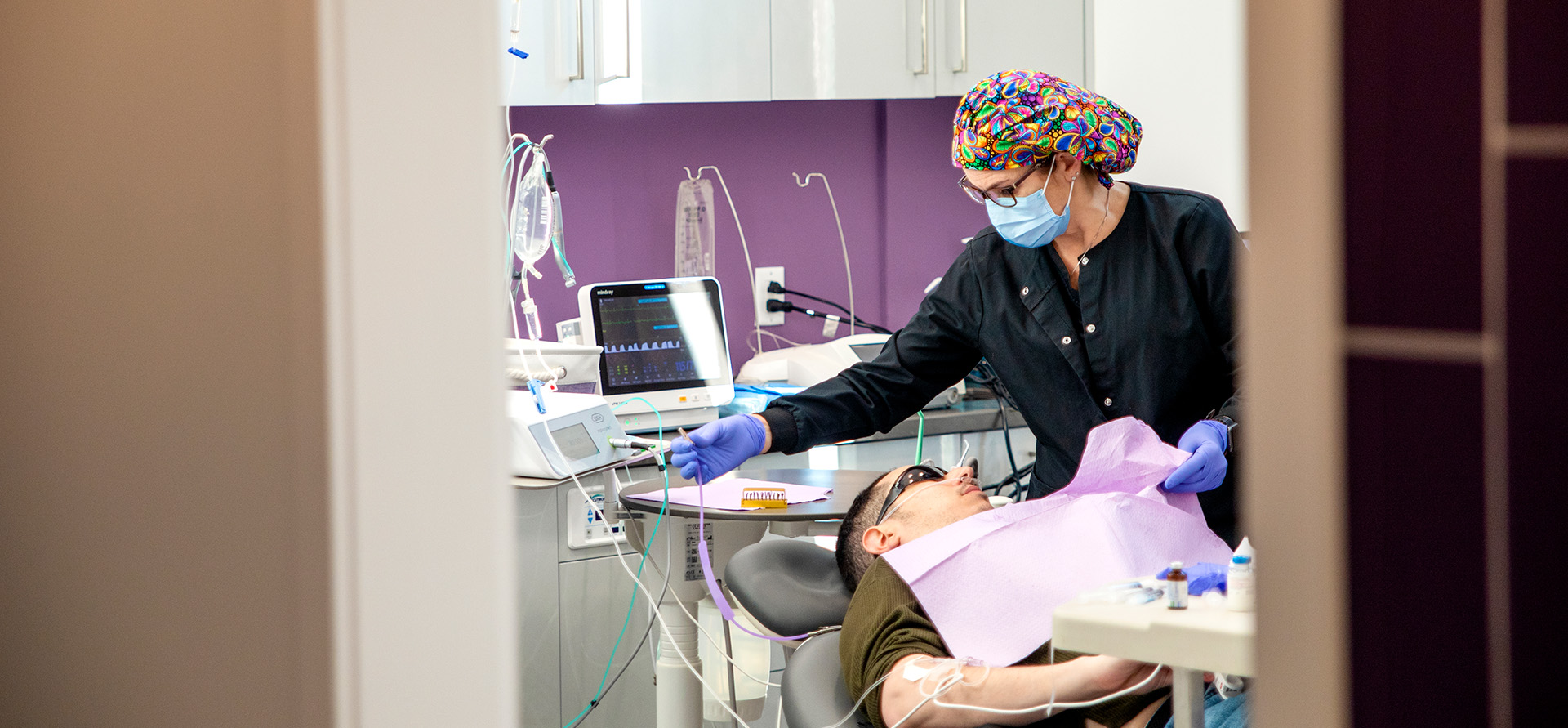


State-of-the-Art Surgical Center:
Our office features some of the most advanced technology available, including a 3D cone beam scanner and a 3D intraoral digital scanner to ensure the actual surgery is delivered with impeccable precision, predictability, and speed every time.


At Philadelphia Oral & Maxillofacial Surgery, we strive to provide our patients with a comfortable and stress-free experience. Here’s an overview of what you can expect during the wisdom teeth removal process with Dr. Nguyen:
Before the procedure, you will meet with Dr. Nguyen for a consultation to discuss your oral health and determine if wisdom teeth removal is necessary. During this appointment, you can ask any questions you may have about the procedure and discuss any concerns you may have.
Depending on your individual needs and preferences, Dr. Nguyen may recommend a combination of local anesthesia, sedation dentistry, and general anesthesia to keep you comfortable during the procedure.
During the procedure, Dr. Nguyen will make an incision in the gum tissue to access the wisdom tooth. If necessary, she may remove a small piece of bone to fully extract the tooth. In certain cases, the tooth may need to be sectioned into pieces to make it easier to remove. Once the tooth is removed, the incision will be closed with stitches.



We care about your privacy! By submitting this assessment, you agree to the privacy policy on this website. We will contact you only with information regarding dental implants.